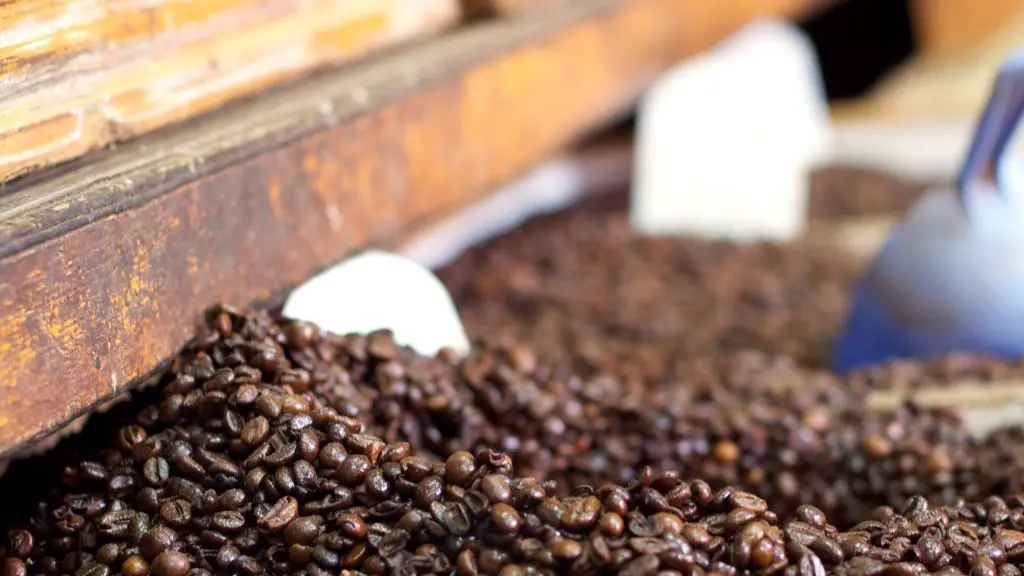When discussing the effects of drinking coffee on teenagers, it is important to consider the caffeine content and its impact. Caffeine is a psychoactive stimulant known to temporarily provide alertness and energy, but with prolonged periods of excessive intake, it can become potentially harmful. The recommended caffeine limits for adolescents can vary depending on their size and weight, as younger folk typically respond more strongly to the substance. Some sources suggest that adolescents should consume an amount of less than 100 mg of caffeine per day, which is equivalent to a single 8-ounce cup of brewed coffee.
Since younger people tend to be more sensitive to the effects of caffeine, the impacts it can have on their bodies need to be taken into consideration. It can lead to high blood pressure, pancreatic problems and insulin resistance, especially if they are regularly consuming too much. It can also lead to disrupted sleep patterns and result in a lack of energy throughout the day.
Other experts suggest that coffee itself is unlikely to be bad for teenagers in the long run, but its excessive consumption can be harmful. It does contain nutrients that have potential benefits for teenagers, including important antioxidants and compounds that help in enhancing cognitive performance. On the other hand, it should be noted that there is evidence to suggest that too much caffeine can lead to symptoms such as fatigue, nausea, headache, irritability and difficulty sleeping. Additionally, it can cause caffeine addiction if not consumed in moderation.
Moreover, it is important to note that excessive consumption of coffee can have a negative effect on teenagers’ mental health, as the stimulant can make them feel anxious, confused and depressed. It can also trigger headaches and disrupt their ability to concentrate, leading to poor academic performance. Furthermore, if they are used to drinking large amounts of coffee, they are likely to develop a tolerance to the stimulant, meaning they will need to consume more to get the desired effect. This could lead to further health complications in the future.
To conclude, while drinking coffee may provide teenagers with some physical and mental benefits, it should not be consumed in excessive amounts. Furthermore, when making the decision to consume coffee, they should understand the potential risks and make sure that they are taking it in moderation. They also need to be mindful of the ingredients that are added to their coffee, as some may contain unhealthy additives such as sugar which could further contribute to health issues.
Coffee Culture
Another factor to consider when discussing coffee consumption for teenagers is its social aspects. The increased prevalence of coffee culture has made it more accessible for the younger generation and this, in turn, has created a sense of normalisation where drinking coffee has become more mainstream and socially accepted. This means that many adolescents are more likely to drink coffee, even though it may not always be in moderation. This is further compounded by the fact that coffee may be consumed in social settings together with friends, which further encourage excessive consumption.
As such, it may be difficult for teenagers to regulate their coffee intake and to resist the temptation to drink coffee excessively. Therefore, it is important that parents talk to their children about the potential repercussions of drinking too much coffee and the importance of developing healthy habits. Parents need to be aware of the amount of coffee their teens are drinking and try to encourage moderate consumption.
Furthermore, it is essential that parents educate their children on the importance of a balanced diet. Coffee can provide certain benefits, but teenagers should be aware of other healthier sources of caffeine such as tea. Moreover, as coffee can be loaded with calories, especially if flavoured syrups are added, other healthier substitutes for energy such as fruits and oats should also be added to their diets.
Finally, teenagers should be educated on the potential risks of excessive caffeine consumption and should be encouraged to be more conscious about their coffee intake. This means avoiding energy drinks and other highly caffeinated beverages, restricting coffee intake to 1-2 cups a day and only consuming coffee that is a moderate strength. Developing healthy coffee habits will help ensure that they do not suffer from any long-term health complications caused by excessive caffeine intake.
Coffee Additives
When it comes to coffee and its potential harms, another point to take into consideration is the ingredients that are added to it. For some teenagers, flavoured syrups and cream may be added to their coffees to make them taste better. However, these additives can drastically increase the amount of sugar that can be consumed, which can lead to various health issues including obesity and diabetes. Therefore, when consuming coffee, teenagers need to be aware of the additional ingredients and strive to use natural alternatives such as almond milk and honey.
Moreover, there are also a number of additives that may be added to coffee in order to reduce its bitterness and make it more palatable. Many of these additives, too, can be high in sugars and other unhealthy substances. For example, popular substances such as caramel flavourings and whipped cream can be particularly problematic as the sweeteners and fats that are used to produce them can be damaging to health. Therefore, for those who wish to sweeten their coffee, it is advisable to opt for natural alternatives such as stevia, monk fruit, or even honey.
In addition, many coffee drinkers may also opt to add flavoured syrups to their drinks. Again, these can be concentrated and full of sugars which can lead to long-term health implications. It is also important to remember that these syrups often contain artificial additives and flavourings which can affect a person’s overall wellbeing and wellbeing. Therefore, when consuming syrups, it is best to choose naturally-derived syrups or even opt for black coffee if possible.
Finally, it is important to be aware of the fact that many coffee shops now offer their own variety of flavoured or specialty coffees. While these may seem like a great way to enjoy a cup of coffee, they can often be loaded with extra sugars and fats. As such, it is best to stick to classic black coffees or those drinks that are made with naturally sourced ingredients. This will help to reduce the overall sugar content in the drink and will help to make sure that teenagers do not consume excess sugars without realising it.
Coffee Alternatives
If teenagers are looking for an alternative to coffee, there are several options available for them to choose from. As mentioned previously, caffeine can be found in many other sources such as tea, chocolate, and energy drinks. However, it is important to note that the caffeine content in these alternatives is still higher than that in coffee. Additionally, many of these products are processed and full of artificial flavours, making them potentially damaging for health in the long run.
For those who are looking for a more healthy option, natural stimulants such as guarana, Asian ginseng, and green tea can provide an energy boost without the side effects that can come with coffee. These stimulants contain antioxidants that can help to improve mental and physical performance without any of the risks associated with caffeine. Furthermore, these stimulants can be sourced naturally and are not likely to lead to an increased risk of health issues.
Finally, for those who wish to further reduce their coffee consumption as well as their caffeine intake, decaffeinated coffees are a good alternative. Decaffeinated coffees are typically made with a process that involves the removal of caffeine from the beans, leaving them with a brew that still retains the flavour and taste of regular coffee, but without the stimulant. Additionally, decaffeinated coffees are typically low in calories making them a healthier choice for teenagers looking for that extra energy boost.
Advantages of Coffee for Teenagers
Although there are risks associated with excessive coffee intake, it is important to remember that there are also a number of potential benefits that can come with consuming coffee in moderation. For instance, coffee can be an excellent source of antioxidants, helping to protect the body from damage done by free radicals in the environment. Additionally, coffee can help to reduce fatigue, increase focus, and even improve mood, helping teenagers to be more productive during their studies.
Moreover, coffee has also been linked to a number of heart benefits. Studies have shown that regular intake of coffee can lead to reduced risks of stroke, heart failure, and heart disease. Furthermore, coffee can also help to lower the risk of type 2 diabetes, as it has been shown to improve sensitivity of insulin. Therefore, for those who are looking for natural ways to boost their health, consuming coffee in moderation can be a good option.
Finally, it is important to recognise that coffee can be a great source of energy for teenagers, particularly when they are studying for exams or engaging in physical activities. This is because caffeine acts as a stimulant and can help to improve performance and alertness. Of course, it needs to be consumed in moderation and not in excessive amounts, but its stimulating effects can be beneficial for teenagers in the right amounts.
Conclusion
In conclusion, while drinking coffee in moderation may help to improve mental and physical performance, it needs to be consumed responsibly and with caution. Teenagers need to make sure that they are aware of the stimulant content in coffee and its potential effects on their health. Additionally, to ensure that teenagers are consuming their coffee responsibly and not in excessive amounts, it is best for parents to talk to their children about the importance of developing healthy coffee habits. This should include consuming no more than 1-2 cups a day and avoiding processed methods of making coffee that involve the addition of sugars and syrups. When these guidelines are observed, teenagers should be able to enjoy the benefits of coffee in moderation, safely, and responsibly.





